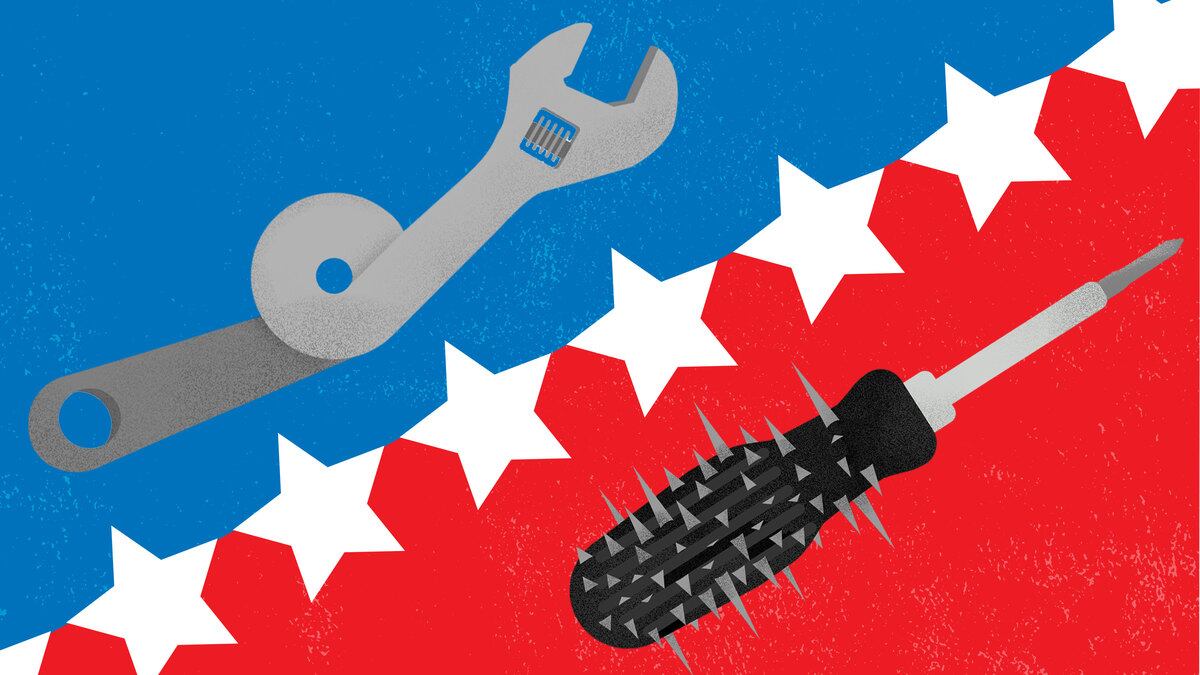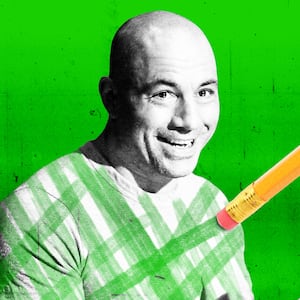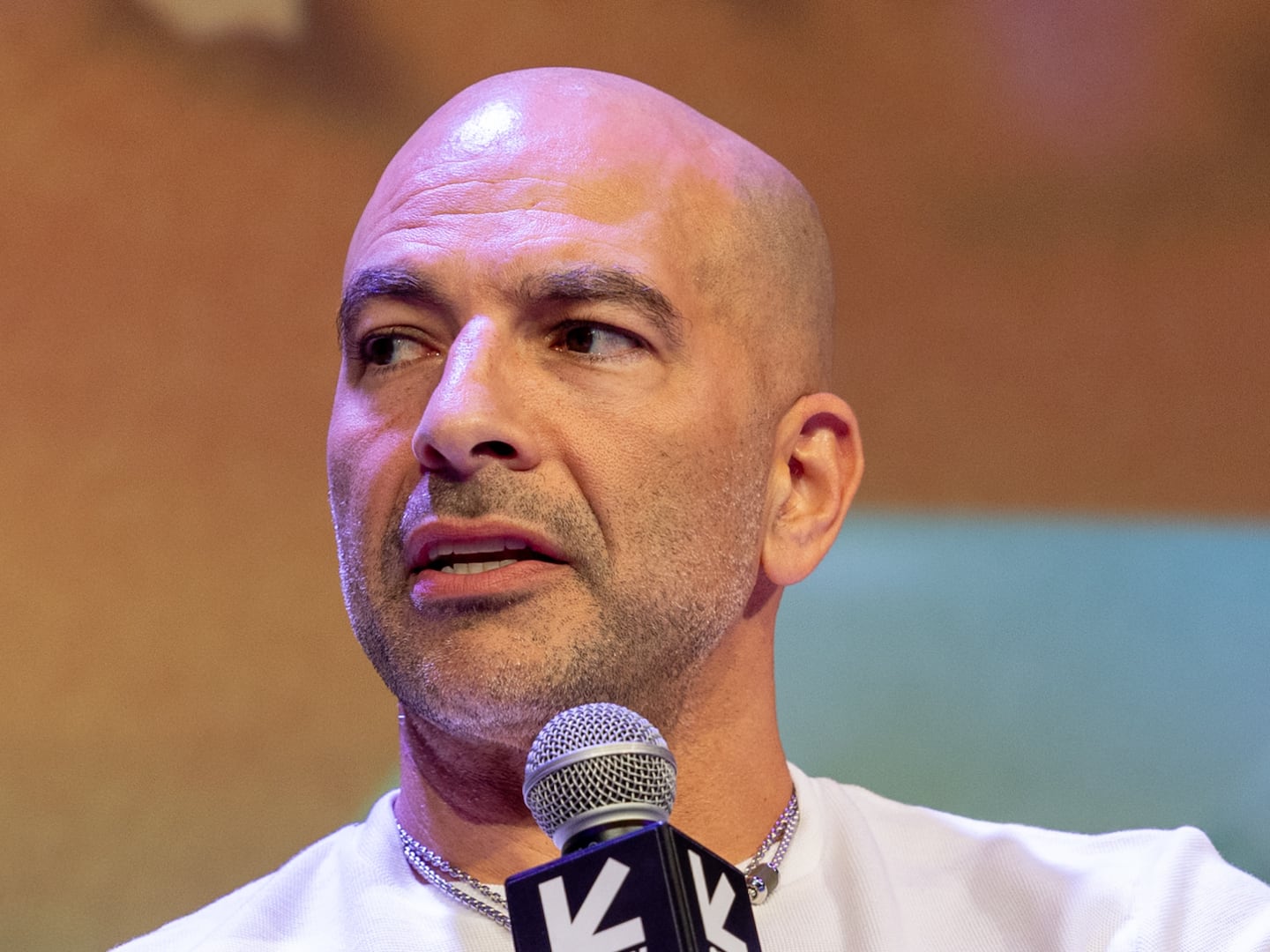Former President Donald Trump repeatedly traveled to northeast Ohio to tell people that he’d save the jobs they still had or bring back the ones they’d lost. Not to be outdone, his successor, President Joe Biden, positioned the 2020 race as “Scranton vs. Park Avenue.”
Both parties claim to care about the working class. But it’s all nonsense.
As two stories from last week show, when ordinary working-class people band together to demand better wages, working conditions, and some kind of say in what happens on the job, neither party really has their back.
The Biden administration is openly considering Judge J. Michelle Childs, an anti-union lawyer, to fill the Supreme Court soon to be vacated by Justice Stephen Breyer. Childs was characterized by one labor union leader as “a management-side lawyer” who has “argued disdainfully against workers’ rights.” During her time at the South Carolina law firm Nexsen Pruet, she repeatedly represented companies whose workers were trying to organize.
Administration spokespeople have defended Childs’ record and pledged to ensure that she makes it onto the DC Circuit Court if she doesn’t end up as the president’s SCOTUS nominee. It’s possible that Biden is only pretending to consider her for the Supreme Court seat as a sop to her primary backer, South Carolina Congressman Jim Clyburn—the third-ranking Democrat in the House and the man who arguably did more than anyone else to block Sen. Bernie Sanders from winning the 2020 Democratic nomination.
Regardless of whether this is true, anyone who believes that “Joe from Scranton” is a genuine friend to working-class people should be surprised that he wants to appoint someone like Childs even to the DC District Court. And the administration’s defense of the choice is extremely revealing. White House spokesperson Andrew Bates referred to her “extraordinary credentials” and emphasized that she was “one of the first Black women to serve as a partner at a major South Carolina law firm.”
Got that? She might have been a partner at a union-busting law firm, but she was one of the first Black women to do so! Who cares if she opposed workers’ efforts to achieve a better life? Just focus on her “extraordinary credentials.”
It’s hard to imagine a more brazen expression of the state of contemporary liberalism that Thomas Frank diagnosed in his 2016 book Listen, Liberal!
The version of progressivism dominant in the contemporary Democratic Party, Frank argued, has to a great extent redefined social justice as the quest for a more diverse ruling class. Instead of trying to raise the floor for the majority of the population by redistributing wealth or empowering workers, mainstream Democrats focus on making sure no glass ceilings hold back the advancement of the “best and brightest” from each group.
The alleged economic populists on the contemporary Right point to these trends and insist that the GOP is positioned to become the true “party of the working class.” As Democrats become more aligned with what some right-wingers have taken to calling “woke capital,” Republicans can represent the interests of working people who don’t like being yelled at in corporate “anti-racism” trainings and who just want to make a good living so they can support their families. Or so the story goes.
Sen. Marco Rubio, who’s tried hard in recent years to position himself as one of the leading economic populists in the GOP, last week introduced a bill that shows exactly what Republican “populism” consists of in practice. Rubio claims that his “TEAM Act”—that stands for “Teamwork for Employers And Managers”—would “breathe fresh air into the American labor movement.”
Rubio’s announcement is full of superficially populist, “woke-capital”-bashing rhetoric. He talks about how American workers “would gladly trade in their ‘diversity workshop’ for a discussion on benefits or flexibility.”
Culture war issues are polarizing enough that I’m sure he’s right about at least a substantial portion of workers—although his use of the word “flexibility” is a red flag. Corporations and allied right-wing politicians tend to use “flexibility” to mean what everyone else means by “precarity.” Uber drivers, for example, enjoy far more “flexibility” than unionized cab drivers.
But how exactly would Rubio’s bill “breathe fresh air into the American labor movement”? By literally bringing back company unions. These are “unions” that are actually controlled by management.
Historically, employers have used such “yellow unions” to stop workers from organizing the real thing. The practice was banned during the New Deal era.
Deploring the fact that real unions “are notoriously left-wing and almost always pit workers against management,” Rubio proposes an alternative that might be able to engage in a “discussion” of better benefits but certainly wouldn’t inconvenience the management part of the “team” by going on strike to actually achieve those benefits.
The dominant wing of the Democratic Party is more than willing to trade the interests of the working-class majority for the meritocratic advancement of members of underrepresented groups with “extraordinary credentials” on their CVs. In so doing, they’re willing to sacrifice the interests of the working-class majority of those same underrepresented groups.
Black women would disproportionately benefit from a resurgent labor movement raising the living standards of the working poor. If J. Michelle Childs achieves a Supreme Court seat, she can’t exactly be counted on to act as their ally—but for liberal technocrats, “justice” is a matter of making sure someone with her CV can achieve dizzying heights regardless of her background.
Meanwhile, as a quick glance at the record of Trump’s appointees to the National Labor Relations Board shows, Republicans are even worse. The grotesque spectacle of Rubio posturing as a pro-worker “populist” while introducing a bill to legalize company unions says it all.
The ugly truth is that workers don’t have much pull with the leadership of either party. That’s unsurprising in a country where only 11.6 percent of them are even organized into unions. There have been a few signs of hope lately, like all the Starbucks locations where workers have been filing for union recognition, but efforts to rebuild the labor movement are going to have to be much more successful at the grassroots level before working-class people can hope to exercise meaningful political power.
Until that happens, when politicians start talking about their scrappy Scranton backgrounds or talking up their “populist” opposition to “woke capital,” workers should know that it’s all a bad joke—and the punchline is at their expense.








